Results 1 to 4 of 4
Thread Information
Users Browsing this Thread
There are currently 1 users browsing this thread. (0 members and 1 guests)
-
12-26-2016, 05:28 PM #1
A thousand Puerto Ricans a week coming to the United States with no vetting
WATCH: NPR correspondent crushes white C-SPAN caller asking to vet US citizens from Puerto Ricans

ELIZABETH PREZA
26 DEC 2016 AT 15:04 ET
 NPR correspondent Tom Gjelten (Screengrab)
NPR correspondent Tom Gjelten (Screengrab)
NPR correspondent Tom Gjelten on Monday shut down a caller asking for his opinion about vetting Puerto Rican migrants, noting “we don’t vet people that move … from one part of America to another.”
Noting his family “migrated from Norway” and “really [takes] pride in the migration and the family history,” the caller inquired:
“I would like to ask the guest what his opinion of the migration that is coming from Puerto Rico right now, due to their financial chaos. A thousand Puerto Ricans a week, not considered immigrants but coming to the United States as U.S. citizens with no vetting. And that just seems like something that’s not being discussed.”
“Well the reason it’s not being discussed, and you alluded to it in your question, is cause they’re not immigrants.” Gjelten said. “Puerto Rico is not a state, but Puerto Ricans are U.S. citizens.”
Gjelten noted similar questions were raised during during the Great Depression when migrants fled the southern Dust Bowl in record numbers seeking economic refuge in California, or when African-Americans headed to major cities “where there were more employment opportunities.”
“We’re talking here not about immigration, we’re talking about migration from one part of the country to another part of the country because there are different economic opportunities,” Gjelten said.
“Those people have every right to move to some other state or other part of the country where there are more jobs,” Gjelten continued. “You talk about vetting. We don’t vet people that move from one state to another, from one part of America to another. That’s their rights as Americans to move. I don’t see how we can really institute some kind of special policy for people from Puerto Rico who want to move to some part of the United States to find work.”
https://www.rawstory.com/2016/12/wat...puerto-ricans/
NO AMNESTY
Don't reward the criminal actions of millions of illegal aliens by giving them citizenship.
Sign in and post comments here.
Please support our fight against illegal immigration by joining ALIPAC's email alerts here https://eepurl.com/cktGTn
-
12-26-2016, 05:39 PM #2
Salaams from Puerto Rico: A Preview of Islam in the Caribbean | Mvslim
mvslim.com/salaams-from-puerto-rico-a-preview-of-islam-in-the-caribbean/
Sep 3, 2015 - The last Puerto Rican Muslim census dates back to 2007, estimating a total of 5,000 Muslims on the island including reverts, making it a 0.10% of the population itself growing yearly in the Spanish speaking community of Puerto Rico and other islands: the Dominican Republic (3,000 since 2015) and Cuba(10,000 since 2010).NO AMNESTY
Don't reward the criminal actions of millions of illegal aliens by giving them citizenship.
Sign in and post comments here.
Please support our fight against illegal immigration by joining ALIPAC's email alerts here https://eepurl.com/cktGTn
-
12-26-2016, 06:51 PM #3Senior Member

- Join Date
- Jan 2012
- Posts
- 4,815
Philadelphians have to put up with crap like this---very large areas not safe to travel thru. The illegal mexicans did not settle there, mainly pr, cubans, dominicans.
Meanwhile PR is an island that is surrounded by paradise resort islands - why not PR? It is under our control and we pay all the welfare payments for all residents here and there.
Promised paradise, delivered to despair
By ALFRED LUBRANO Sunday, Nov. 13, 2016
How Puerto Rico uses a network called Air Bridge to export its addicts to Philly.
AGUADILLA, Puerto Rico — Percida Ramos was losing her son to heroin. The police officer who visited her house by the Caribbean Sea last winter offered hope in the form of a single word: Philadelphia.
Her 20-year-old son, Kelvin Aldarondo, would live in Kensington, where ministers run resort-like, anti-addiction estates where the heroina demons are chased from young people's brains as they ride horses, swim in blue pools, and play day and night on basketball courts fit for LeBron James.
Her son would even have a job within five months, she was promised by the officer, as well as a local pastor who endorsed the idea. All Ramos, a 38-year-old registered nurse, had to do was get Aldarondo to Philadelphia and wire $150 to an address on North Front Street.
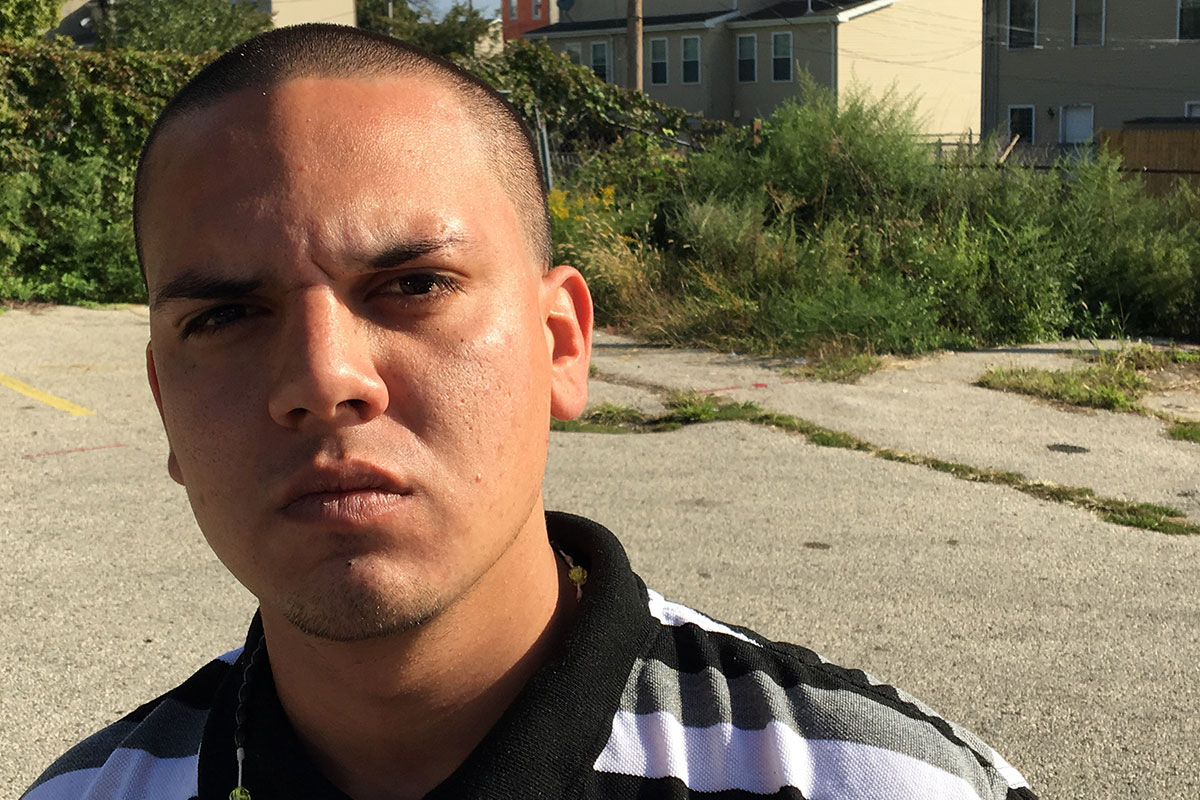 Kelvin Aldarondo of Aguadilla, Puerto Rico, then 20, was sent by his mother to Kensington to get help for his heroin addiction. What he found was far different from what he and his mother were promised.
Kelvin Aldarondo of Aguadilla, Puerto Rico, then 20, was sent by his mother to Kensington to get help for his heroin addiction. What he found was far different from what he and his mother were promised.
Away Aldarondo flew, a one-way $241 plane ticket in hand. He showed up, freezing, on Feb. 4 in an impoverished neighborhood powdered with what the U.S. Drug Enforcement says is the purest white heroin in America.
Pastor Teo Claudio escorted Aldarondo into a grim, three-story building under the El with around 20 other men sleeping on bunk beds in four bedrooms and sharing three bathrooms.
Where in Kensington, Aldarondo wondered, were the stables?
Soon he phoned his mother in a furtive midnight call on a smuggled phone: "Please, Mama, please," he begged, "take me home."
With his mother's help, Aldarondo was able to get away from the house Claudio runs. But nine months later, he's still stuck in Kensington, and Ramos hasn't stopped trying to bring her son back to the island.
"Everyone lied," Ramos said, crying, as she spoke through a translator. "The police, the pastor. I understand now it's all a sham — a way to get drug addicts out of Puerto Rico."
Then, she added, "Please tell this story right. I don't want other people to have to go throughwhat I did."
Since the late 1990s, pastors, police, and mayors in Puerto Rico have been sending hundreds of heroin addicts, many of them HIV-positive, to Philadelphia, New York, Chicago, and other cities.
The officials work with mainland ministers, some of whom travel from Philadelphia to the island to recruit addicts, offering drug treatment based on abstinence and prayer.
In more than 120 interviews with people in Puerto Rico, Philadelphia, and elsewhere, the Inquirer has tracked a pattern of exploitation from the Caribbean to North Philadelphia that has increased the numbers of homeless and HIV-positive people in the city, torn apart families, and confounded advocates.
The practice is known as Air Bridge. A few critics call it a form of human trafficking.
Puerto Rico
* Cities sending people to Philadelphia
* Cities sending people to other U.S. cities
* Metro areas
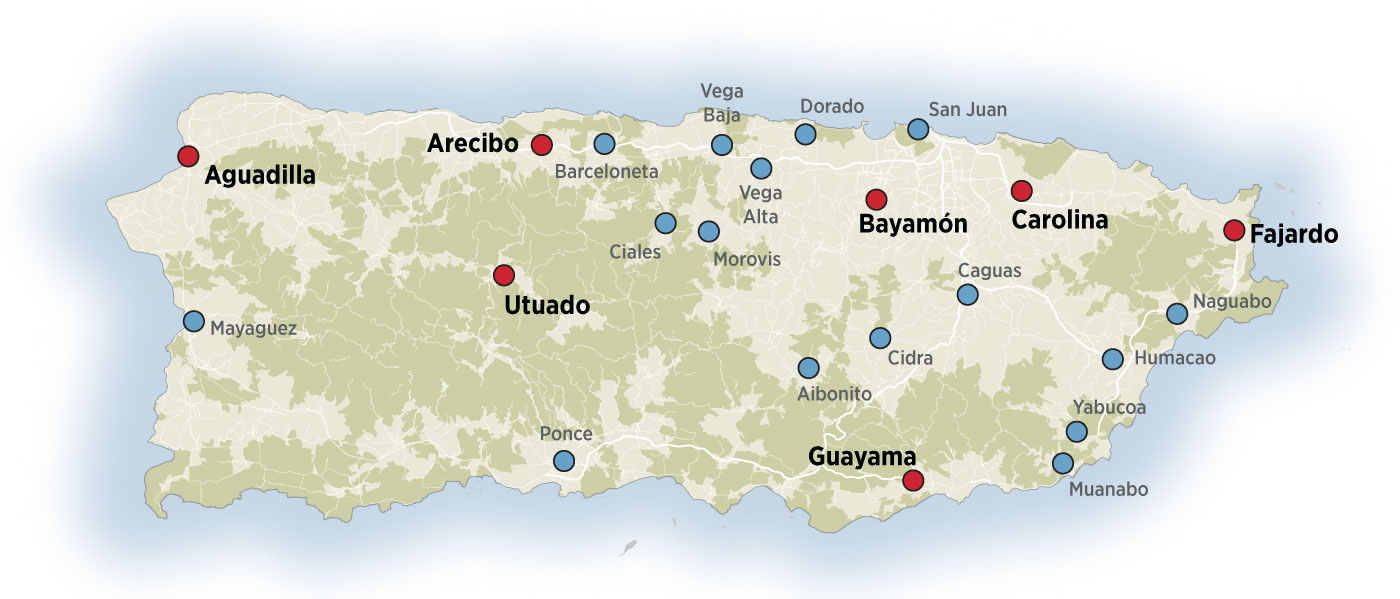
City
Population
Median-household income
% living below poverty level
Unemployment rate
Bayamon
185,996
$8,990
*
68.7%
*
19.2
Carolina
157,832
$13,288
*
53.5%
*
20.7
Arecibo
44,191
$7,733
*
71.3%
*
35.6
Fajardo
28,930
$15,760
*
55.9%
*
30.2
Guayama
22,691
$15,782
*
54.2%
*
20.8
Aguadilla
13,310
$11,260
*
72.6%
*
34.2
Utuado
8,397
$11,043
*
63.8%
*
37.3
They see it as a way Puerto Rican cities clear their public squares of junkies and dump them in places such as Kensington and Frankford. Mayors say it's necessary because treatment facilities are sparse on the fiscally cratered island, and that they owe their citizens a chance to end their distress. In many cases, island municipalities themselves pay the one-way airfare to Philadelphia. And police officers often drive addicts to San Juan Luis Muñoz Marín International Airport in squad cars.
Once in Philadelphia, the drug users, who are overwhelmingly young men, are funneled into so-called recovery houses where they complain that pastors belittle them in rants imbued with religious overtones. Such confrontational therapy, said Carmen Albizu, a physician and a public-health professor at the University of Puerto Rico, is ineffective, harmful, and perverse.
No state or city agency monitors what's going on in the majority of the estimated 150 recovery houses in Kensington and Frankford — where about half the recovery houses in the entire city are clustered. They are unlicensed and unregulated. Legally, they are private homes that officials can't enter without invitation, said Fred Way, executive director of the Pennsylvania Alliance of Recovery Residences, a nonprofit headquartered in Frankford that evaluates recovery support.
The state has formed a task force to look into regulation of recovery houses across Pennsylvania. But under proposed legislation, only the houses throughout the state and city that accept government money would be monitored — a vast minority, according to records. For example, just 21 houses in Philadelphia get city money.
And that doesn't address Air Bridge, so widely unknown that William Stauffer, who heads the state task force, had believed the practice was an "urban legend," said Jason Snyder, press secretary for the Pennsylvania Department of Drug and Alcohol Programs. Stauffer, who is executive director of the Pennsylvania Recovery Organizations Alliance, a nonprofit advocacy agency in Harrisburg, did not return phone calls.
“They’re shifting the burden of addiction onto Philadelphia — a stupid and selfish calculation.”
Roberto Abadie, a anthropologist from the University of Nebraska
Along with recovery, addicts say, they are promised employment, apartments, and happiness — none of which is delivered. "In Puerto Rico, they say, 'Just send the [addict] away and you don't have to see him again,'" said Abadie, who only recently learned about Air Bridge after initiating a National Institutes of Health study of Puerto Rican injection addicts.
Municipalities figure they only have to spend a few hundred dollars in airfare to save thousands in the costs of drug rehabilitation — which often fails — or incarceration, he added.
"They're shifting the burden of addiction onto Philadelphia — a stupid and selfish calculation."
Fees and confiscated IDs
"They suck everything out of you," explained Carlos Aquino, 40, who says his mother in Carolina, Puerto Rico, was fooled into sending him to what was supposed to be a "beautiful dream" of a recovery house in Bridesburg called Still Saving Lives.
But nothing was nice there, he said. Last winter, managers in the house forced him to work clearing snow from properties in the neighborhood, then took half the cash he earned. "I never even saw snow before," he said through a translator. "I didn't have a coat."
A person who works at the house quibbled with that figure: Management takes only 25 percent of clients' earnings, he said. Aquino eventually left the house, unable to coexist with its operators. He's now homeless and wanders daily around Kip and Cambria streets in Fairhill, thinking of ways to afford the nickel bags of heroin his body craves. "My dad just died in Puerto Rico, and I couldn't get to the funeral," said Aquino, starting to cry. He'd told his family he needed cash to return to the island, he said, "but they don't want to hear about any more of my problems." As he wept, dozens of similarly emaciated young men with sallow skin and nowhere to go walked the streets, remarkably crowded for 1:30 in the afternoon.
"There are a lot like me," he said. "When I started shooting heroin, I got married to the devil."
Men who arrive from Puerto Rico are forced to apply for food stamps, then hand over their benefits to the recovery houses. The U.S. Department of Agriculture, which regulates food stamps, now known as SNAP benefits (for Supplemental Nutrition Assistance Program), says it's permissible for a drug-recovery house to require patients to sign over their benefits, as long as the house is providing food.
Too often, the operators of these houses will sell SNAP benefits at a discount to unscrupulous store owners and pocket the money, said Elvis Rosado, a coordinator at Prevention Point Philadelphia, a needle-exchange nonprofit that aids addicts in Kensington. Rosado and his boss, executive director Jose Benitez, have worked with Air Bridge victims for years, in some cases rescuing them from virtual incarceration in recovery houses and helping them return to Puerto Rico.
Addicts relocated to Philadelphia say they must pay an initiation fee to the houses, then a monthly rent of around $150 that doesn't include incidentals like toilet paper and toothpaste. Along with rents and fees, recovery-house residents must also turn over any Medicaid benefits or Social Security disability payments they are entitled to receive.
Finally, they have to surrender all forms of identification such as birth certificates, Social Security cards, and driver's licenses to discourage the men from leaving, and for the recovery house to retain control over them, said advocates familiar with the system. Others profit from the addicts' condition. Rosado said many men in Philadelphia recovery houses are ferried for an hour or so a day, three days a week, to nearby drug-treatment centers.
Such places pay the recovery-house operators weekly stipends — "kickbacks," some charge — that can amount to thousands of dollars for dubious group therapy, said Chris Marshall, director of Last Stop Sobriety, a well-thought-of residential center in Kensington. The treatment centers are reimbursed by insurance companies, Marshall said. Expected to swear off heroin cold turkey, many of the addicts never get the methadone or buprenorphine that can help them, Benitez said.
One thing that drug-dependent, homesick addicts stuck in inadequate recovery facilities will nearly always do is find more narcotics. That's especially true in Kensington, considered by law enforcement officials to be the largest open-air drug market on the East Coast.
It's hard to stay clean when your recovery house and your drug dealer are on the same corner.
If addicts get kicked out, or flee their recovery houses, they are often not given back their IDs, said Angel Gonzalez, a physician and former addictions expert for the Puerto Rican government who has investigated Air Bridge both on the island and in Philadelphia. The process, he said, creates a population of homeless men stripped of their identification, marooned in Philadelphia. City figures show that the total number of homeless people in Kensington rose from 136 in 2015 to 278 this year. Those numbers include suburbanites who move into the neighborhood after getting hooked on drugs.
But there is no census of Air Bridge victims.
"How many people have we lost and not even known about?" asked Sam Santiago, outreach coordinator for Project HOME, the anti-homelessness nonprofit in Philadelphia.
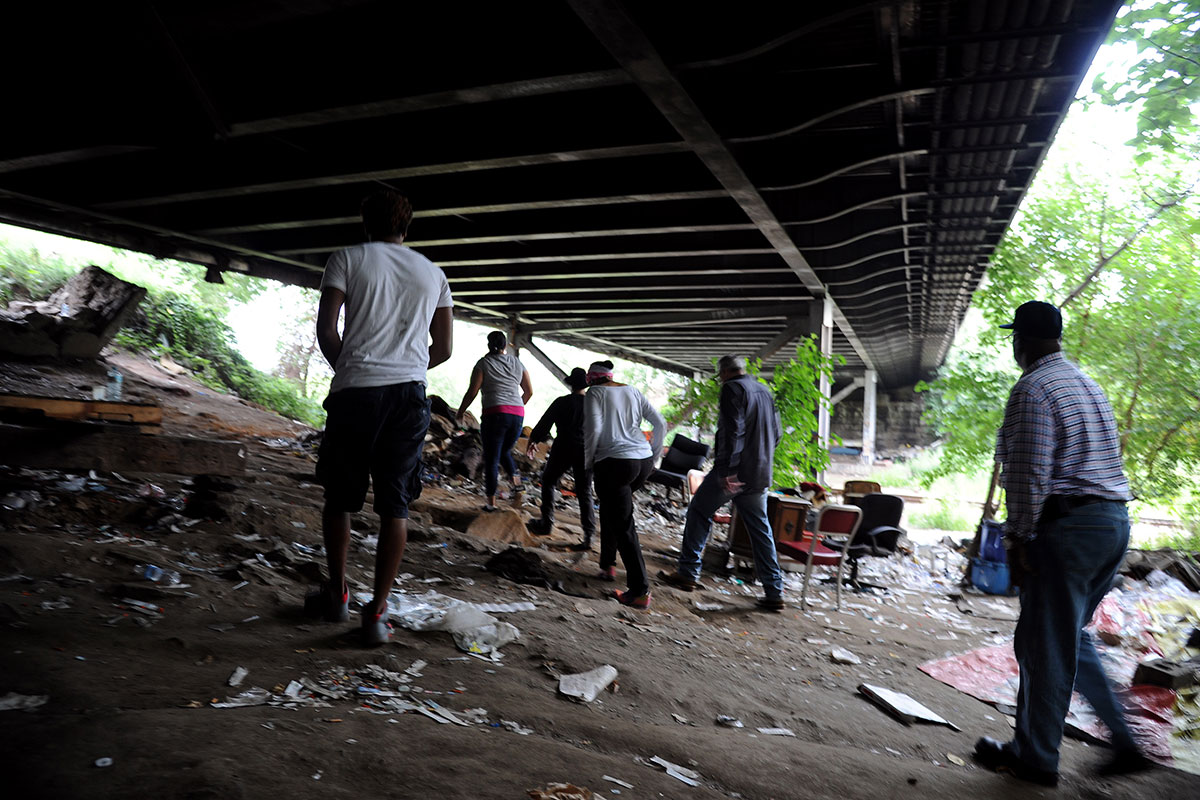
TOM GRALISH / Staff Photographer
Charito Morales, a registered nurse and advocate, leads a group through “El Campamento,” a camp of homeless drug users under a railroad bridge in Fairhill.
"How many have ended up dying — freezing to death, overdosing? These poor people came up here looking for something they need. "But they never get it." None of this seems to trouble municipal officials in Puerto Rico, said Oscar Miranda, a criminal-law professor at the University of Puerto Rico who's working with Albizu to understand Air Bridge.
"Police and mayors on the island are proud of doing this, because it's seen as a problem solved," he said.
And, other experts declared, having fewer addicts around enhances the appeal of the island for tourists, on whom its economy depends. Puerto Rican officials don't believe that addicts are poorly treated on the mainland. "We have been rescuing our people in the streets and sending them to good programs in Philadelphia," said Gladys Cintron, who runs a program in the city of Bayamón known as Nuevo Amanecer (New Dawn). She said the city no longer exports to Philadelphia, but that everyone who had gone "is doing well."
Bound by religious affinity, police, mayors, and ministers all form a natural alliance that Orlando Santiago, who is Miranda's assistant, called "booking dot com" — a way to chase addicts into coach airline seats on northbound planes with God's blessing. "A horrific pattern". Not much of official Philadelphia has heard of Air Bridge, including the local offices of the FBI and the DEA, as well as the Philadelphia District Attorney's office, according to spokespeople for those agencies. Some Philadelphia police officials are aware of it, but "with murders and shootings to take care of, it's just not on my radar," said Capt. Michael Cram of the 25th District.
Slowly, however, pressure is building to address the exportation of Puerto Rico's addicts on a broad level.
"The picture is emerging of a horrific pattern in U.S. cities that's really quite shocking," said Steven Schwinn, co-director of the International Human Rights Clinic at John Marshall Law School in Chicago. “Unquestionably a human trafficking issue.”
Steven Schwinn, director of the International Human Rights Clinic at John Marshall Law School in Chicago.
"It's unquestionably a human trafficking issue," he said. Schwinn added that, in June, the clinic petitioned the United Nations Committee Against Torture to examine Air Bridge. "These so-called drug-treatment centers fail to provide appropriate medical treatment for the victims, resulting in torture or ill treatment of the victims in violation of the [U.N.] Convention Against Torture," reads the clinic's submission to the U.N. Officials from the U.N. would not comment.
The only law enforcement entity known to be investigating Air Bridge is the Cook County Sheriff's Office in Chicago. It began its probe after reports last year on WBEZ.org and National Public Radio's This American Life on addicts being exported from Puerto Rico to Chicago.
Chicago officials are trying to determine whether the one-way plane tickets given to addicts are being paid for with federal dollars issued by the U.S. Department of Housing and Urban Development for helping the homeless. Puerto Rico is a U.S. territory eligible for federal funds; its citizens are Americans who don't need passports to travel to the U.S. mainland. The sheriff's office laid out its case in a 2015 letter to the HUD Inspector General's office, requesting an investigation. A spokesman for the HUD IG's office would not confirm whether an investigation is ongoing.
Sheriff's officials added that the Puerto Rican state police conduct a program called Vuelta A La Vida (Return to Life) that shuttles island addicts to the mainland. It sent 127 people from six island cities to Philadelphia between 2005 and 2014, documents from the Chicago sheriff's office show. The count, experts say, does not include drug users sent here by mayors, ministers, and the municipal police.
Officials for state and municipal police departments in Puerto Rico declined repeated requests for comment.
Advocates who have worked closely with the victims of Air Bridge are angry, and at a loss for remedies.
"People are bamboozling, profiting from, and taking advantage of injection-drug users," said Rafael Torruella, executive director of Intercambios Puerto Rico, a nonprofit that helps addicts in Fajardo, P.R.
“In the end, the ministers are making money off God’s name.”
"In the end, the ministers are making money off God's name," said Torruella, a psychologist whose Ph.D. thesis shows that Fajardo, a resort city on the island's east coast, has sent its addicts almost exclusively to Philadelphia. The attitude, Torruella said, is, "you take our Puerto Ricans [as] taxpayers foot the bill."
Rosado of Prevention Point, himself a native Puerto Rican, said that island mayors tell addicts "go to jail, or go to Philadelphia." No one involved, said Rosado, has ever been held accountable: "It's been driving me crazy for years." "How is that fair?" On weekends, thousands of boats slice through the calm waters off Fajardo, famous for its marinas and beaches.
Watching over it all is Aníbal Meléndez Rivera, the island's longest serving mayor, in office for 28 years.
"We sent drug abusers to Philadelphia for years to help them get treatment," said Rivera in his opulent office within a restored blue colonial building on the town square. Dressed in a soccer shirt on a recent casual Friday, the mayor sat beside his wife, Diana, a retired social worker who works, gratis, for the city.
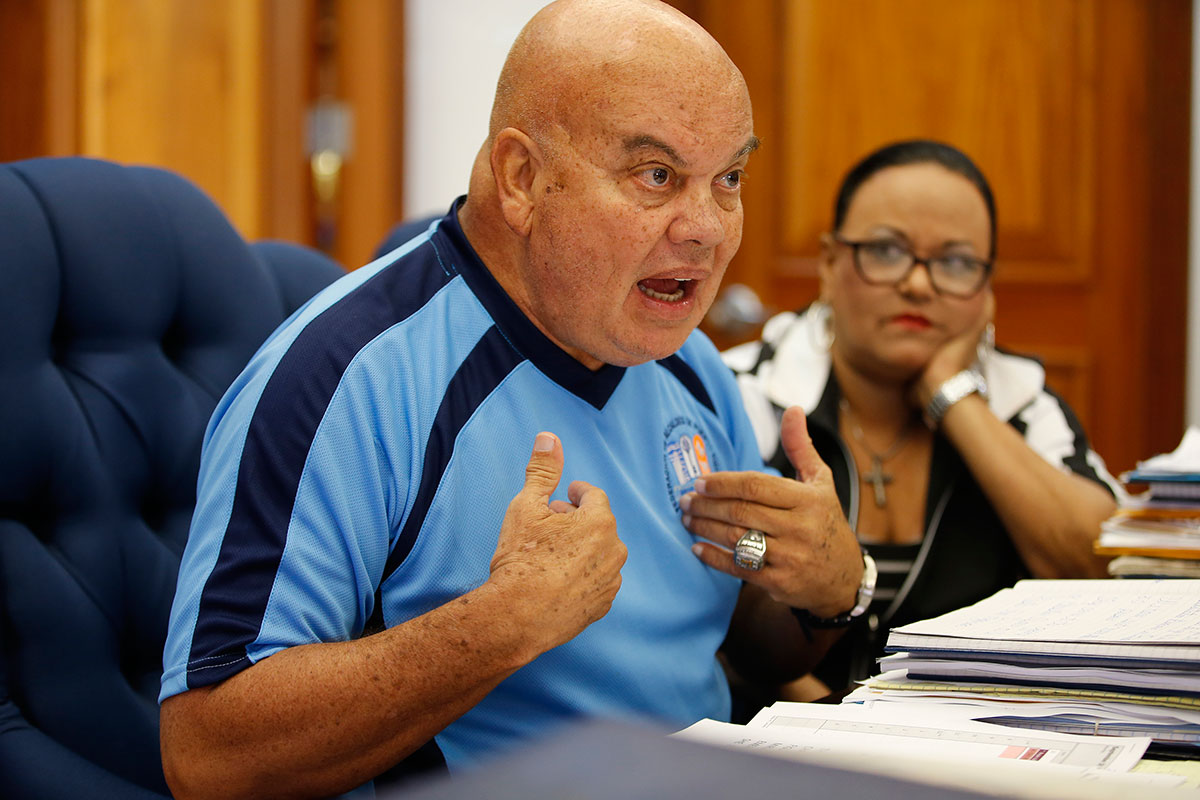 MICHAEL BRYANT / Staff Photographer
MICHAEL BRYANT / Staff Photographer
Aníbal Meléndez Rivera, the mayor of Fajardo, P.R., with his wife, Diana, a retired social worker who works for the city. This summer, Philadelphia Councilwoman Maria D. Quiñones-Sánchez met with Rivera, who told her Air Bridge “was his brainchild,” along with the mayor of San Juan.
"We helped pay for their airplane tickets with city money," he said, adding, "We've taken them to the airport with police." Then he quickly reversed himself — "No, we didn't use police."
This summer, Philadelphia Councilwoman Maria D. Quiñones-Sánchez met with Rivera, who told her Air Bridge "was his brainchild," along with the mayor of San Juan. "He was very proud of it," she said. Many recovery houses fall within her district. Rivera said that ministers from Philadelphia visited the island to offer the services of their recovery houses. He said he was never paid by the ministers to supply patients.
In a 10-year period he'd sent 30 addicts to Philadelphia, he said, though advocates on the island and the mainland say he's dispatched many more. Rivera said the city stopped exporting addicts two years ago.
Told that Fajardo addicts have faced severe hardships in Philadelphia, Rivera expressed surprise: "Our people who went to Philadelphia said everything was clean and there were no complaints."
In 2014 and 2015, Puerto Rican health officials circulated letters to 78 island mayors saying that drug addicts sent to the mainland were being poorly treated in unregulated recovery houses where their IDs were grabbed.
Rivera said he never saw any such letters.
One of his wife's friends, Yesenia Pereira, said that after she lost her right arm in a car crash on the island in 1994, she turned to heroin to blunt the pain and became addicted. People in the mayor's office then "told me to go to Philadelphia," Pereira said through a translator. "They said I would get help, and an apartment and a job."
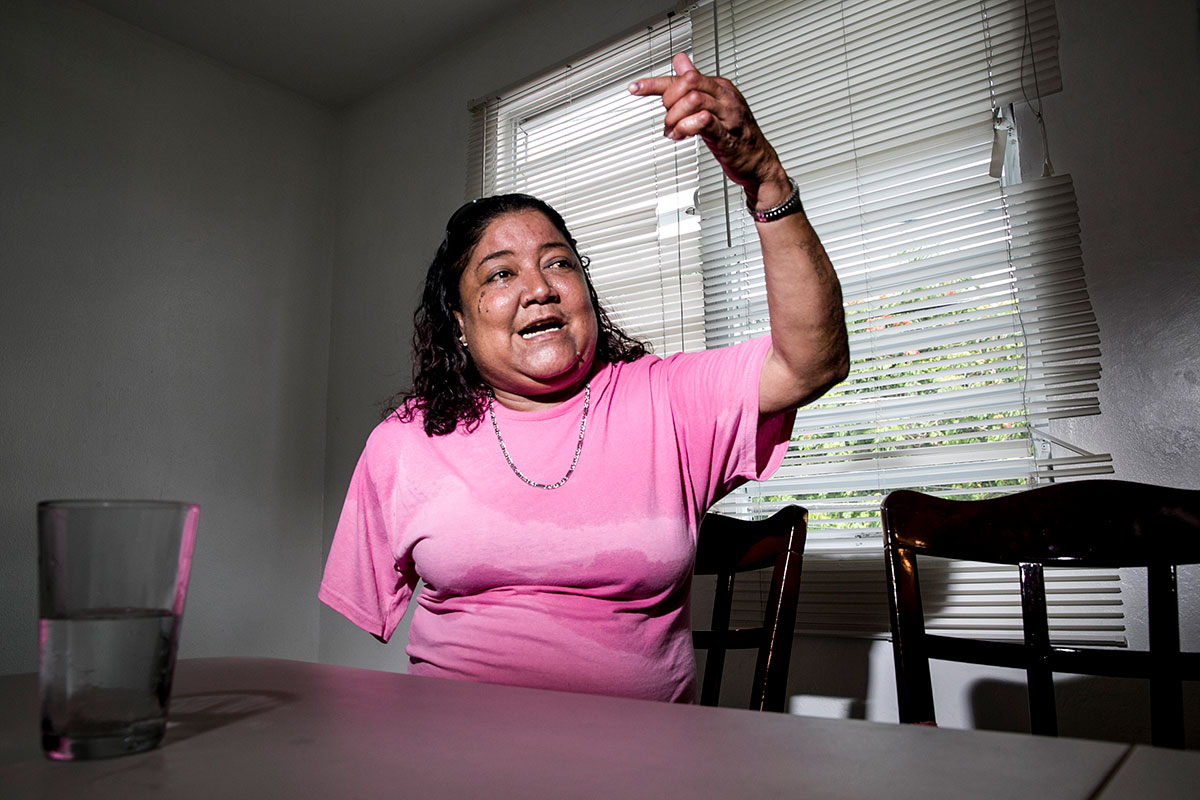
MICHAEL BRYANT / Staff Photographer
Yesenia Pereira, of Fajardo, P.R., who lost her right arm in a car crash in 1994, says she turned to heroin to blunt the pain and became addicted. People in the Fajardo mayor’s office, she says, “told me to go to Philadelphia. They said I would get help, and an apartment and a job.” Instead she was abused and exploited, she says.
Sent to a since-shuttered recovery house in Kensington in 2001, Pereira, 43, said she was screamed at daily by the pastor who ran the place. "I couldn't believe he was a man of God," she said. Pereira said she was made to sign over her food stamps and was locked up with eight other women whose IDs were taken. There was no therapy, let alone a job. And the women could never leave.
After three of her friends ran away and became homeless in Kensington, Pereira said she begged her mother to bring her back to Fajardo, which she eventually did. The other women, meanwhile, died of overdoses, Pereira said. Upon her return home, Pereira sought out Diana Rivera and told her, "You need to investigate Philadelphia a little better," Pereira recalled. "But she and the mayor said they would not change anything."
Shaking her head, the mayor's wife said the conversation never occurred.
During her visit, Councilwoman Sánchez got into a heated exchange with the mayor about Air Bridge and how Philadelphia must now deal with additional homeless people living in Kensington, she said. Sánchez has helped Air Bridge victims stranded in Philadelphia return to the island by acting as a liaison between the addicts and their families and coordinating travel home.
"You overburdened another government because of your inability to work on things here," Sánchez recalled telling the mayor. "How is that fair?"
She said he responded, "I had this loitering [of drug addicts] and I cleaned my streets.'"
Mayor Rivera declared in the interview that what happened to Puerto Ricans in Philadelphia "is not my responsibility. … It's the poor administration of Philadelphia that permits this. "I am good people. And everybody believes in me." At that point, his wife grabbed her head and began rocking back and forth, overwhelmed, she said, by news that all was not well with Air Bridge. "What are they doing in Philadelphia to help my people suffering there?" she wailed. "What can be done?" "This is not a good place".
Charito Morales was picking her way carefully through El Campamento, the cluster of tents and huts near the Conrail tracks in Fairhill that's populated by homeless drug addicts, many of them HIV-positive.
A registered nurse, Morales, 37, visits three times a week on her own time to deliver food and water, and to clean people's wounds. "Helping them is something I can't stop doing," she said. Near a giant garbage pile, she stopped to survey the forlorn place. It is, she said, the end product of Air Bridge.
"This is what the pastors created," she said, simmering with anger. "This is God's work." In 2000 when she was 21, Morales was asked by her parents to leave their hometown of Quebradillas, P.R., to find her brother.
He'd become a heroin addict, unraveling somewhere in Philadelphia. Scared but dutiful, she forced herself to go. Within a week she found her brother, Alvin — "robbing, fighting, using drugs." She called police. "If I don't put him in jail," Morales remembered thinking, "he dies."
During her brother's time in prison, Morales decided to stay in Philadelphia and build a life. She put herself through school and became a registered nurse, all while fighting ovarian, cervical, and breast cancers. One of her daughters is studying paleontology in college, another is majoring in social work.
Though Alvin Morales came here on his own, without Air Bridge, his sister said the practice had weighed on her mind, especially after hearing of many victims who wind up living rough and uncovered at Second and Indiana Streets. Morales became a guardian angel, of sorts. She found out through friends that Percida Ramos' son, Aldarondo, had been suffering in Kensington. She started asking questions and searching for the young man from Aguadilla. Said his mother, "Charito is the only one helping him."
"Wild West" dynamic
After industry collapsed in the 1950s and 1960s in Kensington, Frankford, and nearby areas, residents fled and the neighborhoods were left with 30,000 vacant rowhouses, said Robert Fairbanks, who has taught sociology and urban studies at the University of Pennsylvania and at Bryn Mawr College. Poor people, mostly from Puerto Rico, began moving in.
For years, people have been buying cheap houses for tens of thousands of dollars, and have set them up as places to house addicts, said Philippe Bourgois, a former Penn anthropologist who lived in Kensington to study drug dealing.The recovery houses are a "Wild West entrepreneurial dynamic," he added.
Fred Way of the recovery house alliance said many residents of the area inherit houses and call him daily to ask how they can start a recovery house for Puerto Rican addicts. Advocates say the houses seem to have developed as the drug trade in the area spiked.
Predatory recovery houses also have flourished, experts say, because Philadelphia is known for having good, legitimate drug-treatment facilities overall. The houses take advantage of that reputation.
"The main purpose is not the person's recovery, because all the operators see is dollar signs," said William Rodriguez, program director at Fresh Start, a city-funded recovery house widely considered to be well run.
Rogue recovery houses "are unethical, people are being harmed, and that's not what we want," said Arthur C. Evans, commissioner of the city's Department of Behavioral Health and Intellectual disAbility Service.
Still, aside from suggesting to a house operator how he could he could learn to run his place properly, Evans and his department can do little about that. The city's Department of Licenses and Inspections is permitted to investigate recovery houses, but only if it receives complaints related to city building codes and regulations — not drug treatment. Way said he called L&I to investigate Still Saving Lives, the Bridesburg recovery house from which homeless heroin addict Carlos Aquino fled.
The house had no rental license, said an L&I official who asked not to be identified because he's not permitted to speak for the agency. Additionally, the house has had six fire-code violations, the L&I official said.
Along with L&I, the city's Department of Health has examined the three-story, red brick rowhouse. Affixed to the front door recently was a yellow cease-operations order, related to problems with improper food preparation in the house. A house manager said things are better there now.
Still Saving Lives is run by Baptist chaplain Willis Osario, 57, who said he has traveled to Puerto Rico for 17 years to recruit addicts. "I do this from the heart" to help people, he said.
To make ends meet, he said, he accepts "donations" from anyone interested in his work. For example, he said, he'll get a $500 donation from a treatment center for sending his charges to group therapy there.
Rosado at Prevention Point said he receives more complaints from addicts about poor treatment by Osario than any other operator. "They have to be lying," Osario responded. "A lot of people throw dirt at me."
During the summer, Still Saving Lives got some unwanted attention. Rosado and Councilwoman Sánchez spent a week looking for Nelson Quinones Ferrer, 27, who had fled both Still Saving Lives and another recovery house.
Ferrer's parents had flown in from the island and posted fliers with their son's picture on telephone poles in Bridesburg and Kensington. He had been arrested for smoking synthetic marijuana back in Bayamón, where police told him they'd lock him up if he didn't fly to Philadelphia, his family said. His mother said he first tried heroin in Philadelphia — in the recovery house. He was eventually found by police and wound up in Hahnemann University Hospital. His parents flew him home. Ferrer's family denounced Osario, who in turn called them "a bunch of liars." "Of course you have to scream"
When Percida Ramos first told her son Kelvin Aldarondo about going to Philadelphia for treatment, it seemed to make sense. Many Puerto Ricans believe that programs on the mainland must be better. "I was tired of being an addict," Aldarondo said through a translator. "They told me Philadelphia had help, for real, for real." But the strict, God-based agenda preached by Pastor Teo Claudio at Soldiers of the Lord recovery house was devoid of medical care, Aldarondo said. Claudio demanded he hand over his birth certificate, insurance card, and Social Security card, Aldarondo said. Claudio also had him apply immediately for SNAP benefits, Aldarondo said.
Inside Soldiers of the Lord is a dilapidated, dark, church-like sanctuary, with many of the ceiling tiles missing. Exposed wires droop, and a no-pest strip studded with dead flies swings back and forth. The place smells sour and stuffy, like garbage and crammed-in men. The kitchen is well-stocked with meats and other foods, and a pantry holds hundreds of Entenmann's doughnuts, for sugar cravings. "We have good food here," Claudio said.
For Aldarondo, mealtimes were all right. It was the rest of the day that proved an ordeal. "Pastor Claudio just started screaming all the time, making us feel like crap, saying addiction was all our fault," Aldarondo said. After he called his mother, complaining, she phoned Claudio, who told her that her son didn't want to get better. Claudio, a 60-year-old minister, said that he remembers that "Kelvin needed me. I treat all the people here like family." He added that the house never charged Aldarondo an admission fee, and he said he's never recruited addicts from the island.
He acknowledged that he occasionally yells. "The men are not allowed to smoke and they sometimes do," he said. "Of course you have to scream. You cannot be a nice piece of work all the time. "I have a lot of compassion for addicted people. And I am always God-first."
The recovery house has seen problems in the past. Two former residents who fled Claudio's program died. The body of one, Hector Saldana-Rodriguez, was found in the encampment near Indiana Street in February, according to the Health Department. The body of Jose Medina-Rodriguez was found in a vacant house three blocks away in October 2015. "Drug intoxication" was the listed cause of both deaths. The agency would not release further details.
"They left our program before it was completed," Claudio said. "They didn't want to follow rules and had a desire for drugs." Asked whether he takes men's IDs, Claudio first said, "I take their IDs so they don't misplace them." Then he said, "I don't take IDs, only copies." Told Aldarondo had accused Claudio of withholding his birth certificate when he left the house, Claudio said, "He's right, I didn't give him back his birth certificate." Charito Morales was able to intercede, helping pry Aldarondo from Claudio's control, then bringing Aldarondo to Girard Medical Center for 90 days of drug treatment.
A Girard psychological assessment of Aldarondo after he'd lived around five months at Soldiers of the Lord described him as "helpless, hopeless, and powerless." Aldarondo and Claudio didn't part on good terms. Aldarondo accused him of continuing to collect Aldarondo's $200-a-month SNAP allotment after he left.
Morales said that she accompanied Aldarondo to the county assistance office on Lehigh Avenue last month, where they both learned that Aldarondo's SNAP benefits had been used uninterrupted since March 24.
"Kelvin is not fully equipped, brainwise," Claudio responded. "He's not in his right mind."
But Claudio acknowledged he continued to use Aldarondo's SNAP benefits for one month after he was gone.
Aldarondo has requested a state Department of Human Services investigation into Claudio for food-stamp fraud. DHS will not comment. The young man is at another house now, and hopes to feel stable enough to go home soon. His mother said she will be on edge until her boy returns. But she's still feeling ill at ease for other young people like her son. "I was in the Mall of Isabela near my house the other day," she said, shaking her head. "And there was the same cop who sent my son to Philadelphia, rounding up addicts.
"They were going to go to the mainland. For help."
alubrano@phillynews.com, 215-854-4969, @AlfredLubrano
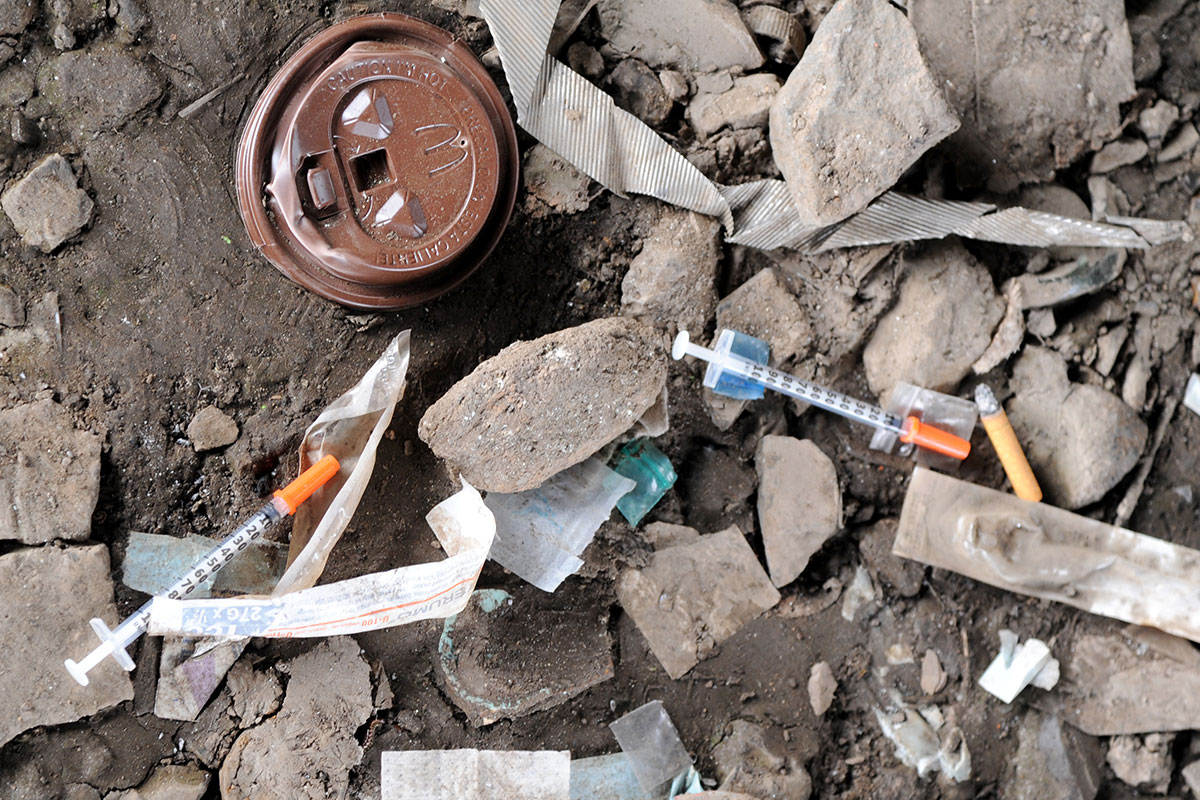
TOM GRALISH / Staff Photographer
Needles among the debris at “El Campamento,” a camp of homeless drug users for addicts near the Conrail tracks in Fairhill.
http://www.philly.com/philly/news/sp...to_Philly.htmlLast edited by artist; 12-27-2016 at 09:09 PM.
-
12-26-2016, 07:07 PM #4NO AMNESTY
Don't reward the criminal actions of millions of illegal aliens by giving them citizenship.
Sign in and post comments here.
Please support our fight against illegal immigration by joining ALIPAC's email alerts here https://eepurl.com/cktGTn
Similar Threads
-
Two-thirds of Puerto Ricans may soon live in US
By JohnDoe2 in forum illegal immigration News Stories & ReportsReplies: 2Last Post: 08-03-2015, 04:30 PM -
Puerto Ricans Immigrating To United States Mainland in Record Numbers
By JohnDoe2 in forum illegal immigration News Stories & ReportsReplies: 1Last Post: 08-15-2014, 12:06 PM -
Why more Puerto Ricans are living in mainland U.S. than in Puerto Rico
By JohnDoe2 in forum General DiscussionReplies: 0Last Post: 03-22-2014, 06:56 PM -
Puerto Ricans opt for statehood in referendum
By JohnDoe2 in forum illegal immigration News Stories & ReportsReplies: 0Last Post: 11-07-2012, 05:25 PM -
Puerto Ricans Could Swing Florida Vote, But Will They?
By Nouveauxpoor in forum illegal immigration News Stories & ReportsReplies: 0Last Post: 07-21-2007, 01:44 PM


 LinkBack URL
LinkBack URL About LinkBacks
About LinkBacks




 Reply With Quote
Reply With Quote




San Diego to Receive Additional $39 Million for Illegal...
04-16-2024, 06:43 AM in illegal immigration News Stories & Reports